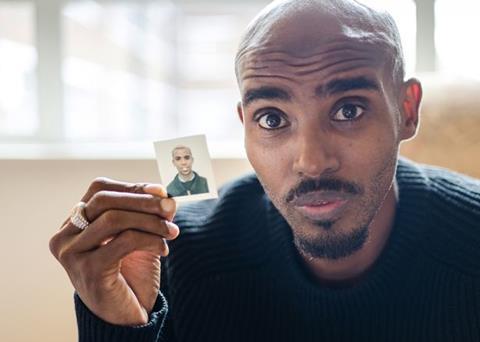In The Real Mo Farah, the Olympic champion bravely shares his experience of child trafficking. His story should inspire us to do more to support survivors and stop others being exploited, says Esther Swaffield-Bray

Many of us were shocked this week to learn of Sir Mo Farah’s traumatic experience of child trafficking. He was taken away from his family in Somaliland, separated from his twin brother and brought to the UK by a woman he’d never met.
Mo was initially excited to go but soon after arriving, he realised he had been lied to. Instead of living with relatives as he’d been promised, he was forced into domestic servitude in west London, doing housework and childcare for a family. Alone, and without any way to escape or access help, Mo was miserable. In the BBC documentary The Real Mo Farah, he recalls regularly locking himself in the bathroom to cry.
We need to see governments listening to survivors like Sir Mo
Mo’s story is a heartbreaking reminder of the realities faced by the estimated ten million children trapped in slavery around the world today, some of whom are right here in the UK. Domestic servitude is just one way in which children are exploited: others are sexually exploited in brothels or online, forced to work in factories or on fishing boats, to give just a few examples. Many, like Mo, are trafficked across borders, which can make it even harder for them to access help. They find themselves in unfamiliar countries without support networks, not knowing where to turn or who to trust. Traffickers are experts in coercion, using threats and lies to make sure children don’t try to escape.
Hidden in plain sight
Mo’s courage in telling his story provides us with a powerful insight into the intense cruelty of this crime, which is happening right now across many UK cities; a problem hidden in plain sight. It’s entirely possible that child trafficking is taking place on your street or in your town, without your knowledge. Last year, police in the UK recorded over 3,000 modern slavery offences involving children - and that’s only the offences which were detected. Sadly, the hidden nature of this crime means that the true scale of child slavery in the UK could be much bigger.
We know that stopping child trafficking is possible. Raising awareness – as Sir Mo has done – is the first step, but it needs to inspire real and urgent action. Children who are trapped in exploitative situations need to be brought to safety. I work for International Justice Mission (IJM), an anti-trafficking organisation which works with authorities around the world to find trafficked children and bring them to freedom. Aftercare is a vital piece of the puzzle, too. Our partners make sure that children have safe places to stay as they heal, supported by social workers and therapists who specialise in helping them overcome traumatic experiences. IJM’s partners support children as they rebuild their lives, reintegrating into their communities and re-entering education. We’ve seen the amazing healing that is possible when survivors are provided with the right care.
Sir Mo’s story is an important reminder that trafficking victims in the UK need access to appropriate help – and they need to be able to do so without fear of recrimination. We need government policies that create a supportive environment for vulnerable individuals to share their experiences and receive protection.
Putting survivors at the heart of policy
Helping children who have already been trafficked is essential, but we can’t stop there. We need to see governments listening to survivors like Sir Mo to create solutions which are truly effective. This is particularly important in the UK right now as the government prepares to review its modern slavery strategy. Survivors’ advice and expertise needs to be at the heart of solutions in order to make sure that they are really fit for purpose.
It’s entirely possible that child trafficking is taking place on your street or in your town
Ultimately, we need to see systemic change: governments, justice systems, law enforcement agencies and NGOs working together across borders to keep children safe and hold criminals accountable. IJM is working to strengthen these systems – and we’ve seen incredible impact, with reductions in child trafficking of up to 86 per cent in the places where we’ve worked.
We all have a part to play. As well as these big picture changes, we need to see individuals and churches raising their voices against trafficking. As a Christian, my faith is a big part of what motivates me to pursue justice for vulnerable children, and I’ve seen the huge impact that prayer can have: IJM’s work is supported by prayer, giving and advocacy from churches in the UK and around the world.
Today, I want to encourage you that you can be part of the story of change. It will take a movement to end child trafficking, but together, we can stop it for good.
Find out more about how to get involved at IJMUK.org/child-trafficking


































